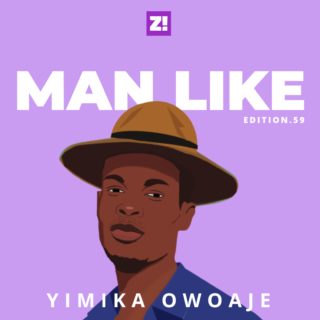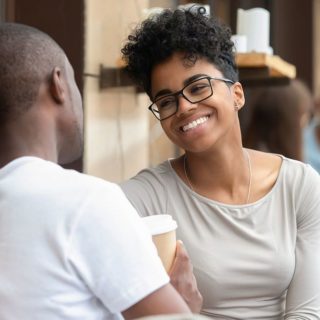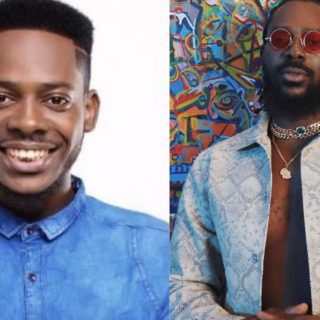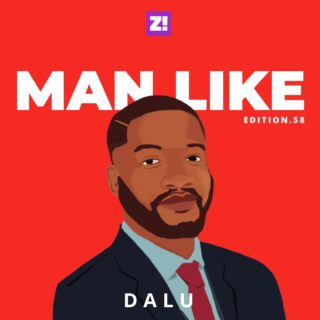What does it mean to be a man? Surely, it’s not one thing. It’s a series of little moments that add up. Man Like is a weekly Zikoko series documenting these moments to see how it adds up. It’s a series for men by men, talking about men’s issues. We try to understand what it means to “be a man” from the perspective of the subject of the week.
Check back every Sunday by 12 pm for new stories in the Man Like series. If you’d like to be featured or you know anyone that would be perfect for this, kindly send an email.
Today’s Man Like is Rotimi Alabi, a 29-year old Afro-Asian fusion chef. He talks about his mother’s influence on his decision to become a chef, how his father’s absence helped him define masculinity on his own terms and how sibling favouritism drove him to independence.
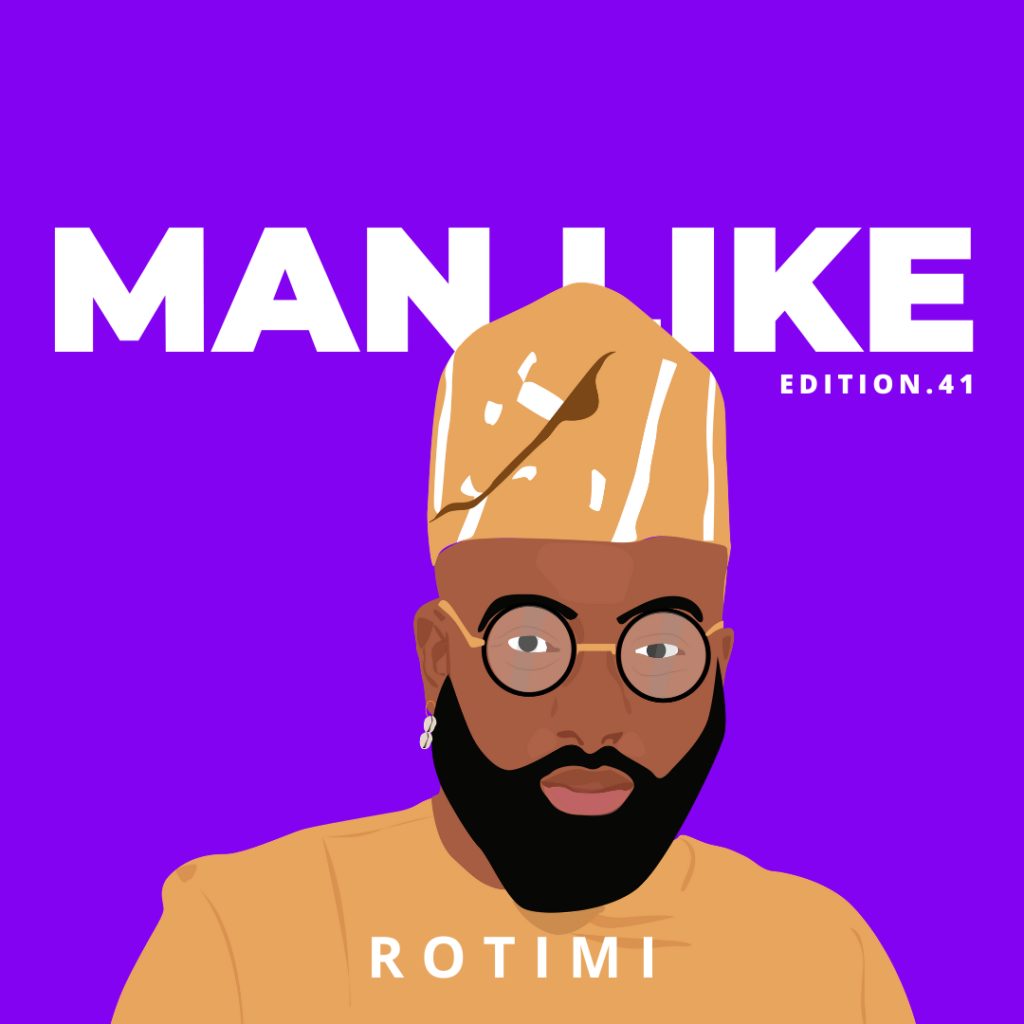
What was growing up like?
My dad was mostly absent because he had another family, and we didn’t get to see much of him. My mom raised my sister and me, for the most part. My sister and I looked alike, but we couldn’t be more different. She’s more of a “Naija” babe while I mostly consume foreign content. She’s not very adventurous with food, but I love trying new foods.
.
What was growing up with your mum like?
Due to my father’s absence, I have a very strong bond with my mum. She’d come back from work all tired and still go through my homework with me. She also made me interested in reading books.
Our bond meant that my mum talked to me a lot. She confided in me about everything. She told me stuff about her life experiences that a seven-year-old had no business knowing. Though she didn’t mean any harm, this meant that I matured too quickly because she burdened me with issues that I was too young for. It made my childhood really short because it made me start to think differently too early.
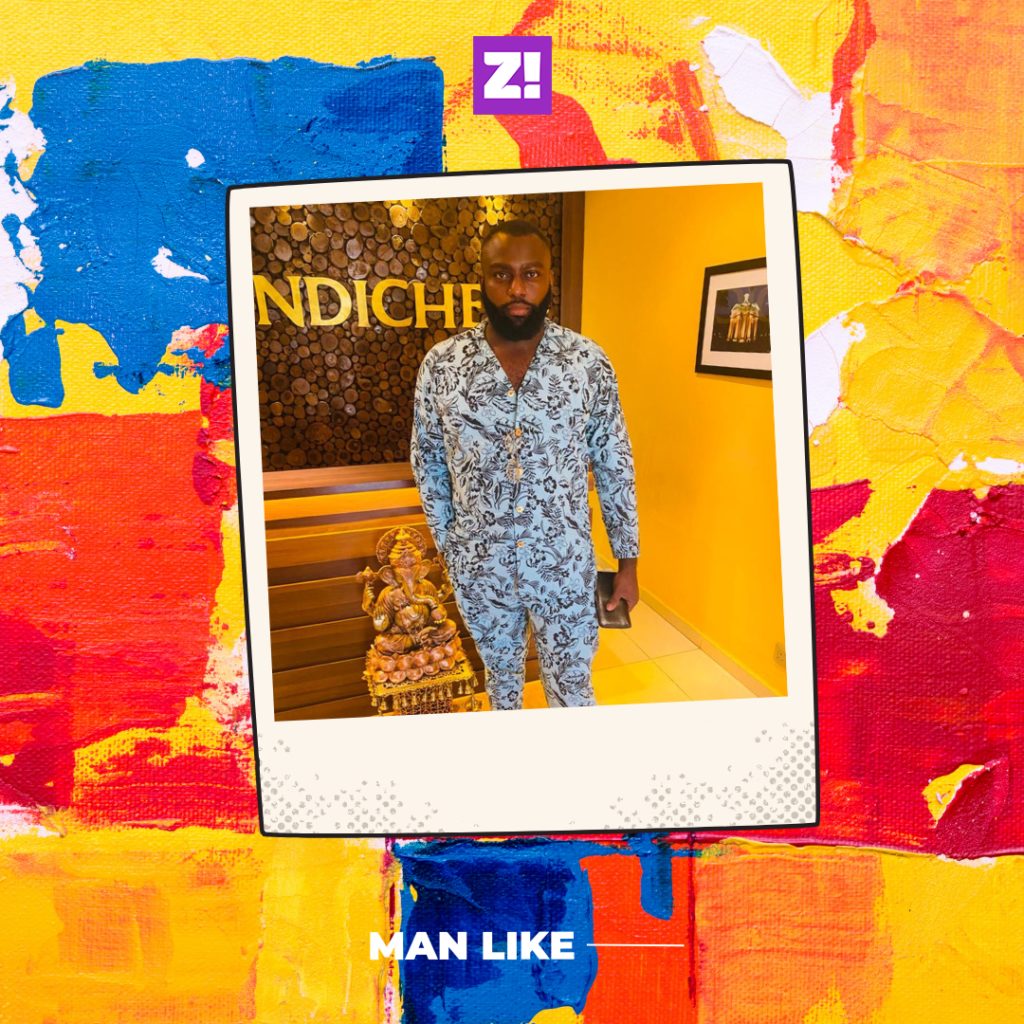
Did you feel the absence of your father?
Not really. He wasn’t exactly absent; he just spent more time with his other family. His presence came with a tense atmosphere. He was a dictator, so my sister and I were really afraid of him. As kids, when we heard his car at the gate, we’d run to our rooms and pretend to be asleep. We avoided him most of the time but when he was in a good mood, he was fun to be around. Because I was close to my mum and two of my cousins lived with us, I didn’t miss him much.
Were you dependent on your mum?
No. I read something recently about how over-independence is a trauma response, and I think that’s what’s up with me because I’m incredibly independent. When I was a kid, I’d ask my mum for things I wanted — a new toy or some gadget I wanted. More often than not, I got “no” for an answer. Conversely, when my sister asked for the same things, she’d get them instantly. Every time I brought it up, they’d say, “You know she’s a girl. We have to make sure she gets everything she wants so she’s not enticed by a predator.” While I understand that sentiment, it didn’t change that I felt cheated all the time. These experiences made me draw into myself, and I became a recluse as a teenager.
At 17, I entered UNILAG to study botany, and for the first time in my life, I felt a sense of freedom. This, however, came with an overwhelming sense of responsibility. I realised that if I wanted to call the shots, I had to be ready for the consequences of my actions.
So, botany…
LMAO. That, I did not plan. Another thing I didn’t plan was to become a cook/chef. I was with my mum in the kitchen a lot. I’d watch her meal prep meticulously and cook meals. I’d steal a slice of tomato or a chunk of dried fish. Sometimes, she’d scold me, other times, we’d laugh about it. These experiences made me realise that I really enjoyed being in the kitchen. I was eight when I cooked for the first time. I tried to cook fried rice. My God, what a disaster that was — the rice was too soft, there was too much curry, everything was wrong. I thought I’d never cook again. But I continued to observe my mother while she did.
I also had an aunt who liked to cook new dishes. I’d go to her house on Sundays to watch her cook and ask questions. Then I watched a lot of cooking shows and studied cookbooks religiously. I was obsessed with cooking and just couldn’t stop trying to learn more.
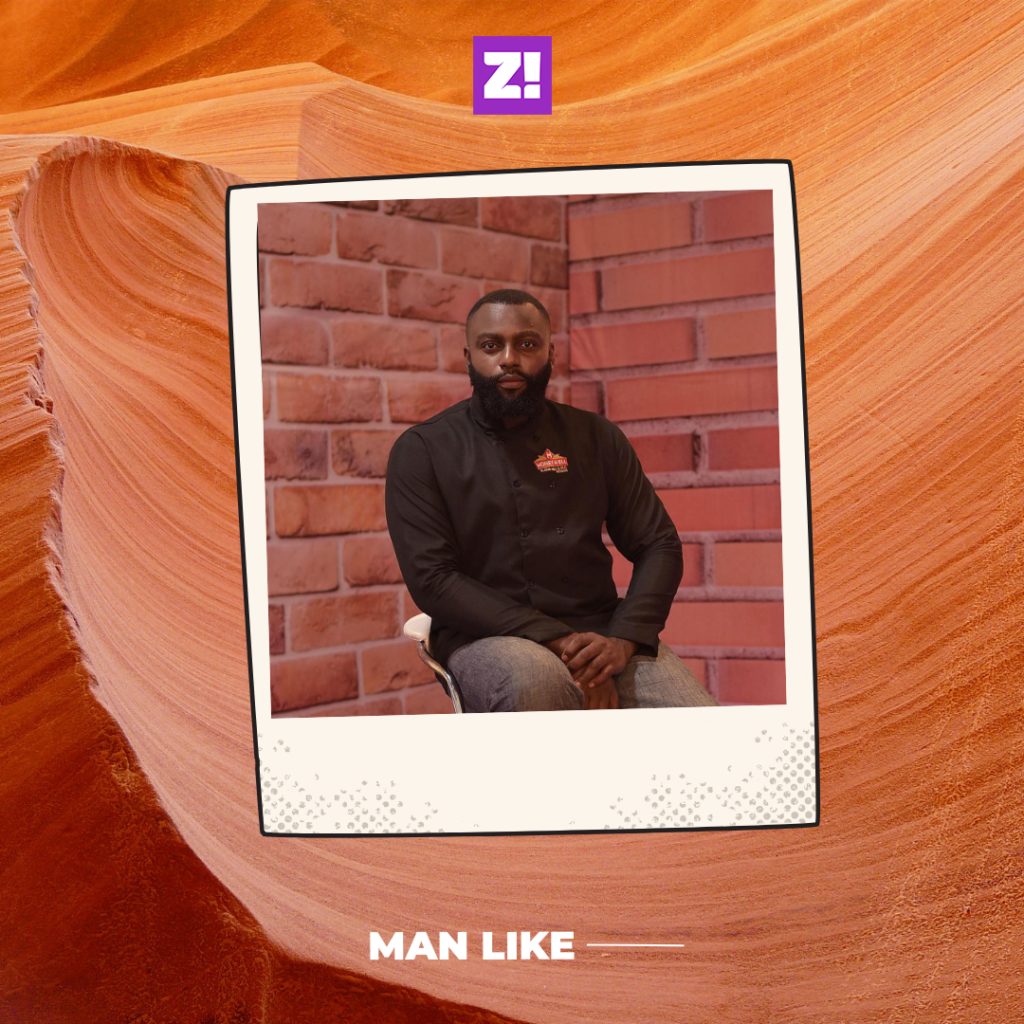
Before I was 10, I knew the three things that were the core passions in my life — cooking, fashion and media. I later worked in fashion, but I found out quickly that it is a brutal industry. I was betrayed by people, and some still owe me for jobs. I’d much rather not work in fashion unless I’m doing so on my own terms. I also worked in media for a while. But of the three, I’ve found that I feel the most fulfilled when I’m cooking. I love it when I create dishes and people love it. Watching someone getting wowed by something I cooked is intensely gratifying. No matter how tired I am, I’m always in the mood to cook because I know that whatever I’m making is going to make someone happy. Perhaps, it appeals to the eight-year-old in me.
When did you decide you wanted to become a chef?
I didn’t think I was going to make cooking my profession because I thought it would take the joy away. One day, a friend of mine, Lade, tasted my food and she pushed me to start cooking commercially. Whenever she had an office event, she’d ask me to make meals and pay me for them. In 2018, she recommended me to a co-worker for a party they were planing. It went really well, and so I thought, “Maybe I could do this for a living.”
How do people react when they find out you cook?
I think the most common one is where people say, “Oh, you’re a chef? Come and dash me food.” No, I won’t. Other people hear that I’m a chef and ask me if I can really cook or if I’m just a poser. But I don’t have anything to prove to them. If they want me to prove anything to them, they should order my food.
LMAO. Would you say your career defines your identity?
No. When I became a chef, my identity was already solid. I knew who I was. Being a chef is just an extra facet of my personality. I’m simply a guy who can cook, not the guy who cooks. There’s a lot more to me than my profession.
Interesting. What kind of person are you in relationships?
I tend to put the other person first, even ahead of myself. I’m the kind of person that carries people on my head, especially in friendships. It all ties into my idea of what it means to be a man.
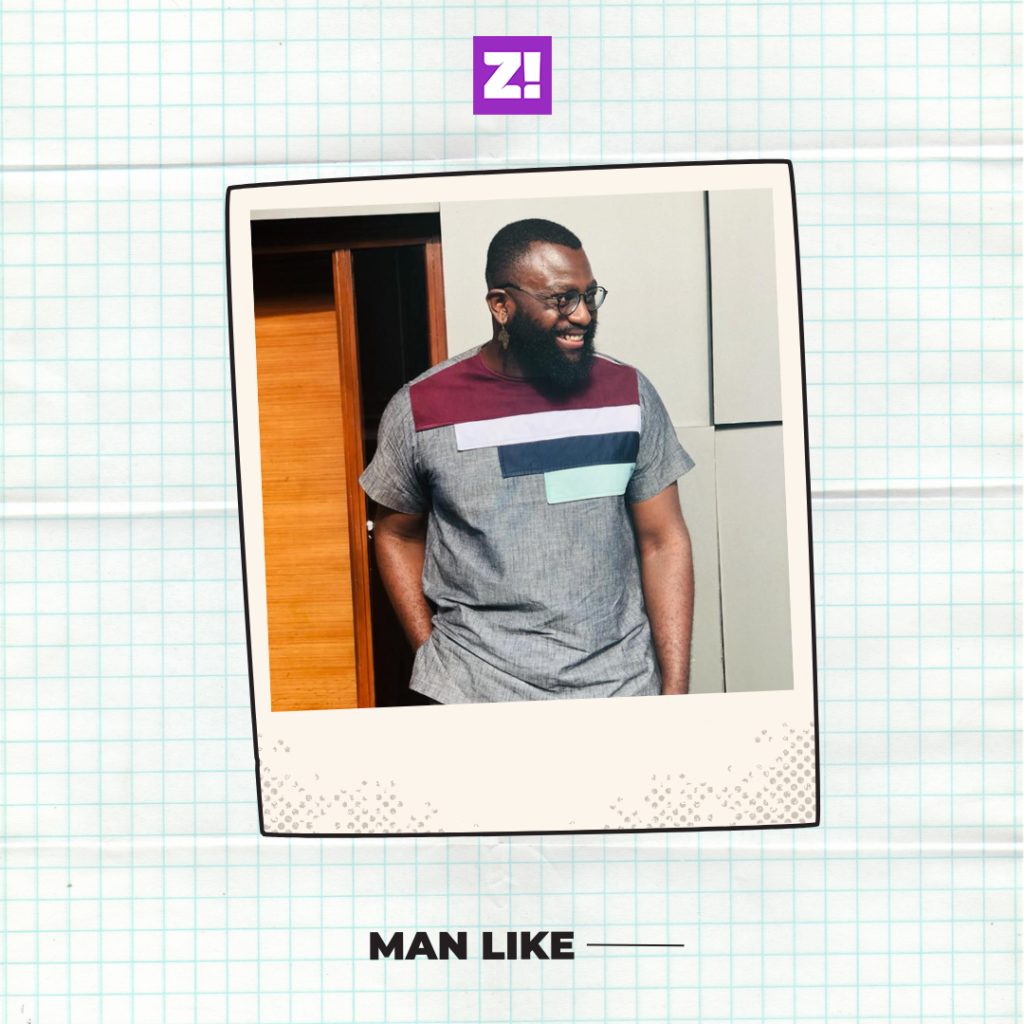
What does being a man mean to you?
To be a man means to be dependable emotionally, mentally, financially and physically. When I got into uni was the first time I realised I was a man. It means to be responsible and above all, have sense. Don’t be unfortunate.
What’s something you splurge money on shamelessly?
Perfumes. I currently have 32 perfumes in my collection. My best friend must not catch me saying this, but I can spend my last dime on perfumes. I also like spending money on my friends.
I’d like to be your friend.
LMAO. Maybe one day.
I’ll take that as a yes.
LMAO.
Check back every Sunday by 12 pm for new stories in the Man Like series. If you’d like to be featured or you know anyone that would be perfect for this, kindly send an email.
Are you a man who would like to be interviewed for a Zikoko article? Fill this form and we’ll be in your inbox quicker than you can say “Man Dem.”

